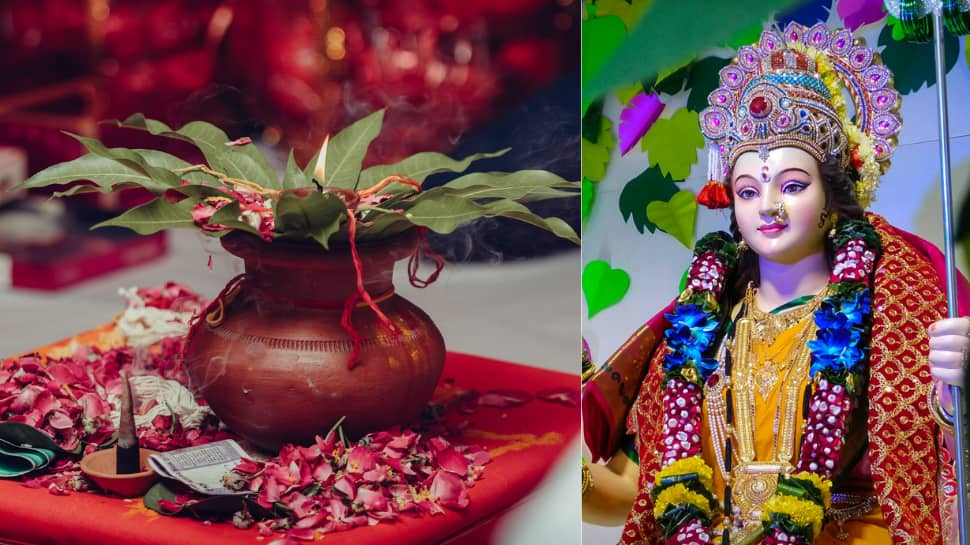
[ad_1]
Chaitra Navratri, set to commence next week, will begin on Tuesday, April 9, 2024 and end on 17 April. The initiation of Navratri, known as Ghatasthapana or Kalash installation, takes place on the first day, Pratipada Tithi. The festival spans nine days, known as Chaitra Navratri, wherein Maa Durga’s nine avatars are revered with enthusiasm across the nation. Devotees, displaying utmost devotion, come together to celebrate this occasion.
The nine forms of Maa Durga honoured each day are Shailaputri, Brahmacharini, Chandraghanta, Kushmanda, Skandamata, Katyayani, Kalaratri, Mahagauri, and Siddhidatri. During the festival, individuals observe fasts and present offerings, or ‘bhog,’ to the goddess.
Navratri Ghatasthapana 2024: Shubh Muhurat
According to Drik Panchang, here are the puja dates and timings you should know about Ghatasthapana, before observing the rituals:
Ghatasthapana Muhurat: Tuesday, 9 April, 6:02 am to 10:16 am.
Ghatasthapana Abhijeet Muhurat: 9 April, 11:57 am to 12:48 pm.
The Pratipada Tithi begins on 8 April at 11:50 pm and ends on 9 April at 8:30 pm. Similarly, the Vaidhriti Yog starts on 8 April at 6:14 pm and concludes on 9 April at 2:18 pm.
Navratri Ghatasthapana 2024: Navratri Kalash Sthapana samagri
Essential items for the ceremony include:
– A wide-mouthed earthen pot for sowing barley
– Five Pallavas – Ashoka leaves, mango leaves, peepal leaves, gular leaves, banyan leaves
– Betel nut, mouli (sacred thread), perfume, flower garland, and red flowers
– Clean earth, clay or copper urn, and a lid to cover it
– A chowki (small stool), red cloth, Gangajal, and sandalwood
– Jata Vala Coconut, Akshat, Durva, Dhoop, and Sikka (coin)
– Saptadhanya (7 types of grains) – Barley, Moong (green gram), Rice, Sesame, and Kangni (foxtail millet)
– Leaves, cardamom, clove, and incense
Navratri 2024 Ghatasthapana: Kalash Sthapana Puja Vidhi
Here’s a step-by-step guide for the rituals on the first day of Navratri:
1. Begin the day by waking up early and taking a bath.
2. Don clean clothes and bring a new kalash (urn) to the puja room.
3. Tie a sacred red thread (kalava) around the neck of the earthen vase.
4. Fill the Kalash with soil (mitti) and grains (millets).
5. Pour Ganga jal (holy water) into the Kalash and offer betel nut, sandalwood, akshat, durva grass, and coins.
6. Place an unpeeled coconut on the top/mouth of the Kalash.
7. Offer flowers, mango leaves, incense, and a diya to the Kalash.
8. Recite the Devi mantra.
9. Perform acts of charity and make donations as a daily ritual.
(This article is intended for your general information only. Zee News does not vouch for its accuracy or reliability.)
[ad_2]
Source link









